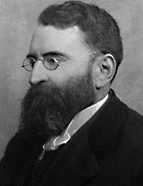

His historiographical vocation returned with the publication of Cartas de Ribeiro Sanches (Medicina Contemporânea, 1907), a text in which he frames and edits two interesting letters from the 18th-century doctor to the Oratorian Teodoro de Almeida.
In 1914-1915, Ricardo Jorge published his first texts on Amato Lusitano (“Comments on the life, work and times of Amato Lusitano”) in the Archives of Portuguese Medical History, writings he produced between 1907 and 1909 on this 16th-century figure in medicine – João Rodrigues de Castelo Branco, a New Christian, a Renaissance man who travelled throughout Europe, was a professor at the University of Ferrara, physician to Pope Julius III, and was later persecuted by the Inquisition. Fragments of the text appeared in other publications, but a posthumous edition in 1962 brought the various texts together in one volume. Initially developed as a commentary on Maximiano Lemos’ biography of Amato, the text took on a life of its own, focusing on the doctor’s travels across the Iberian Peninsula and his pioneering role in the study of Indian drugs, recreating the 16th-century atmosphere of university circles and the situation of the “Portuguese Jews”.
In the context of the Great War, Ricardo Jorge did not shirk his civic duties and class position. With his speech at the Lisbon Medical Science Society, as president, on 5 December 1914, entitled A Guerra e o Pensamento Médico (War and Medical Thought), he accused Germany: using history to show the clinical and sanitary evolution of medicine in the face of war and denouncing the racist doctrines of Gobineau and Houston Chamberlain adopted in the theses of German racial supremacy, a “Teutomania” that culminated in military conflict, which he condemns, since “war is the art of killing, medicine the art of living”.
This work is financed by national funds through FCT - Foundation for Science and Technology, I.P, in the scope of the projects UIDB/04311/2020 and UIDP/04311/2020.
